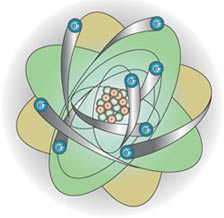Time for the scientific, environmental and economic truth about nuclear power
Time for the scientific, environmental and economic truth about nuclear power
Professor Wade Allison, University of Oxford, UK
Foreign Correspondents Club of Japan, 12.00, 3 December 2014
Key Points...
-
Current regulations are set to appease public fears of radiation with a maximum dose rate (1 mSv per yr) close to the lowest natural background (ALARA), but such regulations are unscientific and fail to calm fears. Low doses of radiation harm nobody because living tissue repairs/replaces damaged molecules and cells, as is well known in medicine. Anyway the public have received no education and still see radiation linked with nuclear weapons.
-
In medicine perfectly safe moderate doses of radiation are used for imaging with universal benefit whenever needed (10 mSv). For over 100 years far higher doses of radiation have been used in radiotherapy to cure cancers and save many lives, even though these occasionally cause further cancers. The public experiences these risks and benefits.
-
Radiation dose rates up to a thousand times higher than current regulations are confirmed to be safe by all medical experience, biological research, animal experiments and accident records, including Fukushima, Chernobyl and Hiroshima/Nagasaki. (500-1000 mSv per yr)
-
SARI, an international group of over 80 international professionals with an arms-length view, is calling for safety regulation to be re-based in real science instead of phony science and appeasement. www.radiationeffects.org
-
Such a change of international radiation safety advice and national regulations would significantly reduce the costs and delays of nuclear energy without any health risk at all.
-
Public confidence in nuclear energy is essential in every democracy prepared to cut its use of carbon fuels to near zero. To be competitive with authoritarian regimes all people including children should understand about life with radiation, as they already do about the dangers of life with fire and sunshine (and the Japanese people do for earthquakes and tsunamis). In every nation the social trust and confidence in science that are essential for the future should come from discussion, study and experience.
-
Japan and other nations with idle nuclear power plant should be encouraged to restart them without further delay. In future all nations should base their energy supply on nuclear and renewables, not on carbon (coal, oil, gas or biofuels).
-
In every country concern about radioactive contamination of food and the environment should be referenced to genuine science-based risks. In Fukushima evacuees should be encouraged to return home. (Chernobyl is now a wildlife refuge with a new tourist industry See Discovery Channel video http://t.co/puM2rwyBMHand National Geographic.)
-
Public concern about nuclear waste should be reduced through science-based education and safety regulation. High level nuclear waste should be reprocessed, the small volume of fission products should be buried and the recovered fuel recycled. Fuel cycles, fast reactors, the use of thorium, etc. should be researched and chosen for their economic benefit.
-
Radiation and Reason website: www.radiationandreason.comfor information, explanations, videos, books, Kindles etc.
-
Pandora's Promise http://www.imdb.com/title/tt1992193/a professional video made by environmentalists now supporting nuclear power
-
NEW an exclusively nuclear electricity tariff available in Germany from 1 Dec 2014 www.maxatomstrom.deas reported in the latest edition of Der Spiegel.
-
The scientific case for the evacuees to return has not changed American Spectator (6 Dec 2011) http://spectator.org/articles/36460/let-people-fukushima-go-home-and-get-back-work
Next - Fukushima Accident updates https://www.hiroshimasyndrome.com/fukushima-accident-updates.html

